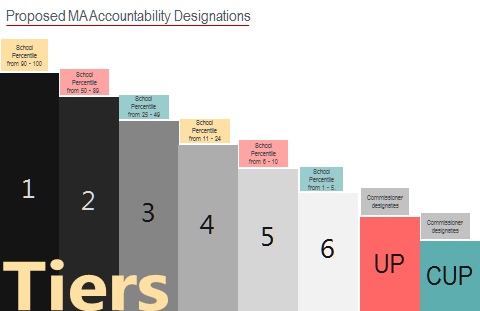Background
On Dec. 10, 2015, President Obama signed the Every Student Succeeds Act. ESSA is the seventh reauthorization of the Elementary and Secondary Education Act first passed in 1965. ESSA replaces No Child Left Behind, the version of ESEA approved in 2001.
ESSA includes nine sections (titles) that establish requirements and provide funding for a number of federal education programs. Title 1 is the largest program, providing about $225 million for schools serving Massachusetts students in poverty.
NCLB mandated a number of accountability requirements, including establishing a goal of all students becoming “proficient” by 2014 and the imposing of “sanctions” on schools that did not make “adequate yearly progress” toward that goal.
Since 2012, Massachusetts schools have been operating under a “flexibility waiver” from many of the provisions of NCLB, including the adequate yearly progress requirements and actions that were mandated if such progress was not achieved. As a condition of the waiver, Massachusetts schools had to meet other requirements — notably, the development of a new educator evaluation system that was originally required for the state to receive Race to the Top funding.
ESSA was intended to represent a shift in the balance of authority between the U.S. Department of Education and state education agencies. Under ESSA, states were assigned more authority and flexibility. In some areas, including educator evaluation, the federal department is specifically prohibited from establishing any state requirements.
 ESSA State Plan for Massachusetts
ESSA State Plan for Massachusetts